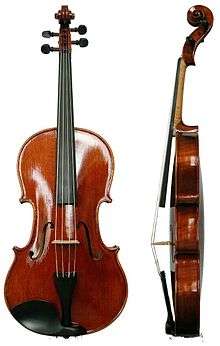Definify.com
Webster 1913 Edition
Alto
Webster 1828 Edition
Alto
AL'TO.
[L. altus.] High.Definition 2026
alto
alto
English
Noun
alto (plural altos)

- A musical part or section higher than tenor and lower than soprano, formerly the part that performed a countermelody above the tenor or main melody.
- A person or musical instrument that performs the alto part.
Usage notes
Synonyms
- (musical part or section): contratenor altus, high countertenor
Coordinate terms
Translations
Anagrams
Galician
Etymology
From Old Portuguese alto, from Latin altus. Cf. also the archaic form outo.
Adjective
alto m (feminine singular alta, masculine plural altos, feminine plural altas)
Antonyms
- (high): baixo
Italian
Etymology
From Latin altus (“high”), ultimately of Proto-Indo-European [Term?] origin.
Pronunciation
Adjective
alto m (feminine singular alta, masculine plural alti, feminine plural alte)
Antonyms
Related terms
Descendants
- German: Alt
Anagrams
Latin
Pronunciation
- (Classical) IPA(key): /ˈal.toː/, [ˈaɫ.toː]
Etymology 1
From altus (“high, deep”) + -ō.
Verb
altō (present infinitive altāre); first conjugation, no perfect
Inflection
| Conjugation of alto (first conjugation, defective) | |||||||
|---|---|---|---|---|---|---|---|
| indicative | singular | plural | |||||
| first | second | third | first | second | third | ||
| active | present | altō | altās | altat | altāmus | altātis | altant |
| imperfect | altābam | altābās | altābat | altābāmus | altābātis | altābant | |
| future | altābō | altābis | altābit | altābimus | altābitis | altābunt | |
| passive | present | altor | altāris, altāre | altātur | altāmur | altāminī | altantur |
| imperfect | altābar | altābāris, altābāre | altābātur | altābāmur | altābāminī | altābantur | |
| future | altābor | altāberis, altābere | altābitur | altābimur | altābiminī | altābuntur | |
| subjunctive | singular | plural | |||||
| first | second | third | first | second | third | ||
| active | present | altem | altēs | altet | altēmus | altētis | altent |
| imperfect | altārem | altārēs | altāret | altārēmus | altārētis | altārent | |
| passive | present | alter | altēris, altēre | altētur | altēmur | altēminī | altentur |
| imperfect | altārer | altārēris, altārēre | altārētur | altārēmur | altārēminī | altārentur | |
| imperative | singular | plural | |||||
| first | second | third | first | second | third | ||
| active | present | — | altā | — | — | altāte | — |
| future | — | altātō | altātō | — | altātōte | altantō | |
| passive | present | — | altāre | — | — | altāminī | — |
| future | — | altātor | altātor | — | — | altantor | |
| non-finite forms | active | passive | |||||
| present | perfect | future | present | perfect | future | ||
| infinitives | altāre | — | — | altārī | — | — | |
| participles | altāns | — | — | — | — | altandus | |
| verbal nouns | gerund | supine | |||||
| nominative | genitive | dative/ablative | accusative | accusative | ablative | ||
| altāre | altandī | altandō | altandum | — | — | ||
Etymology 2
Non-lemma forms.
Participle
altō
- inflection of altus:
- dative masculine singular
- dative neuter singular
- ablative masculine singular
- ablative neuter singular
References
- alto in Charlton T. Lewis and Charles Short (1879) A Latin Dictionary, Oxford: Clarendon Press
- ALTO in Charles du Fresne du Cange’s Glossarium Mediæ et Infimæ Latinitatis (augmented edition, 1883–1887)
- Félix Gaffiot (1934), “alto”, in Dictionnaire Illustré Latin-Français, Paris: Hachette.
- Meissner, Carl; Auden, Henry William (1894) Latin Phrase-Book, London: Macmillan and Co.
-
(ambiguous) the tide is coming in: aestus ex alto se incitat (B. G. 3.12)
-
(ambiguous) the storm drives some one on an unknown coast: procella (tempestas) aliquem ex alto ad ignotas terras (oras) defert
-
(ambiguous) to make fast boats to anchors: naves (classem) constituere (in alto)
-
(ambiguous) the tide is coming in: aestus ex alto se incitat (B. G. 3.12)
Portuguese
Pronunciation
Etymology 1
From Old Portuguese alto, from Latin altus, ultimately of Proto-Indo-European [Term?] origin.
Adjective
alto m (feminine singular alta, masculine plural altos, feminine plural altas, comparable)
Inflection
| singular | plural | |||
|---|---|---|---|---|
| masculine | feminine | masculine | feminine | |
| positive | alto | alta | altos | altas |
| comparative | mais alto | mais alta | mais altos | mais altas |
| superlative | o mais alto altíssimo |
a mais alta altíssima |
os mais altos altíssimos |
as mais altas altíssimas |
| augmentative | altão | altona | altões | altonas |
| diminutive | altinho | altinha | altinhos | altinhas |
Adverb
alto (comparative mais alto superlative o mais alto)
- loud; loudly
- 2003, Lya Wyler (translator), J. K. Rowling (English author), Harry Potter e a Ordem da Fênix (Harry Potter and the Order of the Phoenix), Rocco, page 445:
- Não fale tão alto...
- Don't speak so loud...
- Não fale tão alto...
- 2003, Lya Wyler (translator), J. K. Rowling (English author), Harry Potter e a Ordem da Fênix (Harry Potter and the Order of the Phoenix), Rocco, page 445:
Descendants
- Kabuverdianu: altu
Etymology 2
From the imperative of German halten.
Interjection
alto!
- halt!
Spanish
Pronunciation
- IPA(key): /ˈalto/
Etymology 1
From Latin altus, ultimately of Proto-Indo-European [Term?] origin. Cf. also the archaic form oto, preserved in some toponyms, and its derivative otar.
Adjective
alto m (feminine singular alta, masculine plural altos, feminine plural altas)
- tall
- Esas chicas son altas. - Those girls are tall.
- high
- Es un número alto. - It's a high number.
- loud
- En voz alta. - Out loud.
Related terms
Antonyms
- bajo - short
Etymology 2
Noun
alto m (plural altos)
Antonyms
- (red light): siga
Derived terms
- hacer un alto
- marcar el alto
Related terms
Interjection
¡alto!
- stop!
